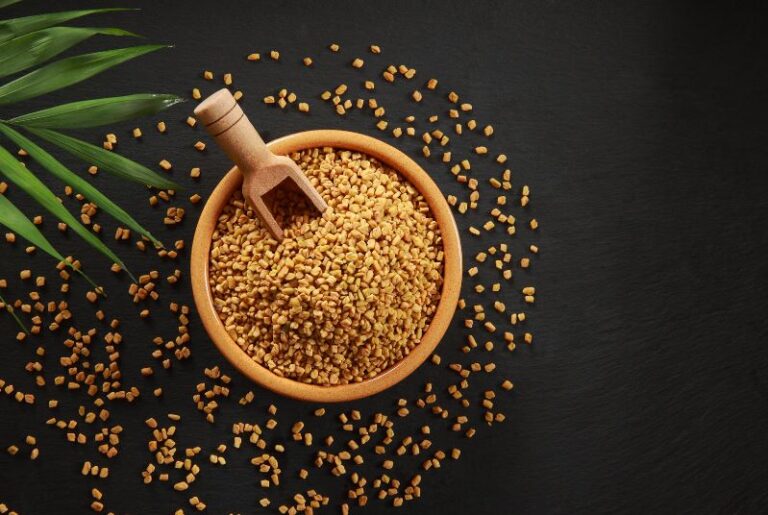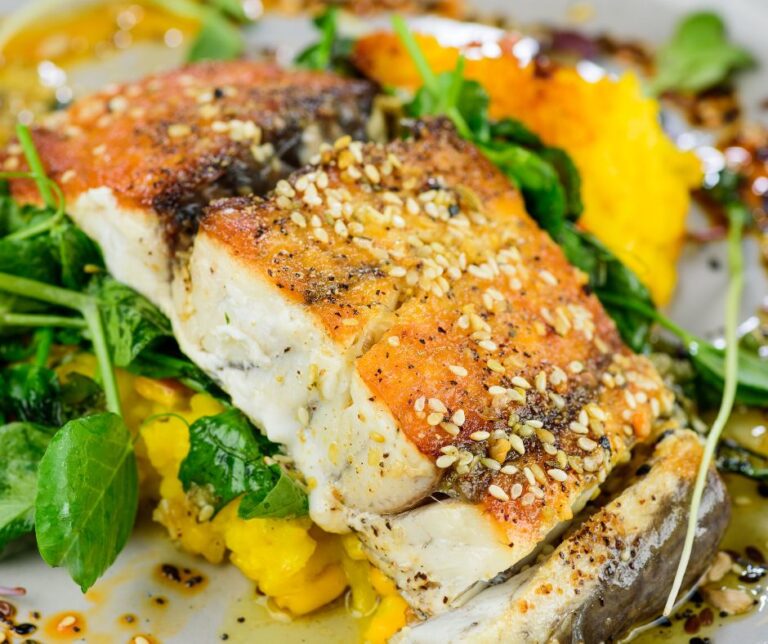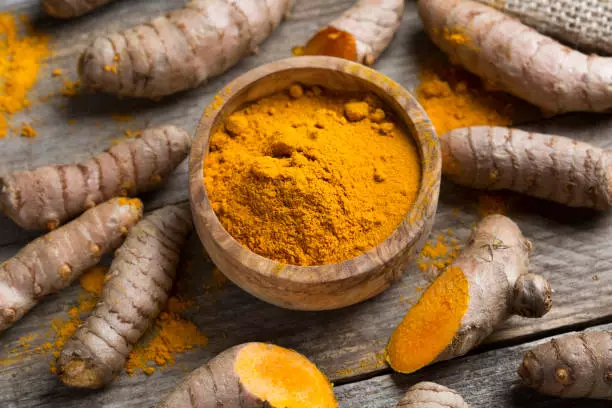Fenugreek for health and flavour
Fenugreek is an ancient herb that has been used for centuries. It’s native to the Mediterranean and parts of Asia, but it can now be found in many different cuisines worldwide.
Fenugreek comes from a plant with edible leaves, seeds, and roots. The most common form of Fenugreek is a dried seed. These seeds have a slightly nutty flavour with a hint of sweetness.
The health benefits of Fenugreek are plentiful! It’s rich in vitamins and minerals, including iron, magnesium, potassium, calcium, and vitamin B6 and C. Fenugreek also contains dietary fibre, which helps promote digestion and regulate blood sugar levels.
Plus, its anti-inflammatory properties help reduce inflammation in the body which can help improve overall health.
Fenugreek can be used in many different ways!
Add it to your favourite dishes or sprinkle it on salads for extra flavour and nutrition. You can also soak the seeds overnight and drink them as tea or add them to smoothies for an extra nutritional boost. Whatever way you choose to enjoy it.
History Of Fenugreek
Fenugreek has a long history that dates back centuries.
It was first used in ancient Egypt as an embalming agent and later adopted by the Romans as a medicinal herb. The Greeks also acknowledged its medicinal properties, and it soon became a staple in their diets.
Fenugreek made its way to India around 600 BC and was embraced by the Ayurvedic tradition. Around this time, it began to be cultivated for its medicinal and culinary value and spread throughout the Middle East, Africa, and Europe.
Today, Fenugreek is widely used in many countries worldwide, particularly in Indian cuisine, where it’s often found in curries and other dishes. It’s also become popular for its health benefits and can be found in natural supplements and teas.
The Nutritional Benefits Of Fenugreek
Fenugreek packs a nutritional punch containing vitamins A, C, E, K and B6 and minerals like iron, calcium, magnesium, phosphorus, potassium and zinc. These nutrients provide numerous benefits such as improved immunity and energy levels, stronger bones and teeth, better digestion and weight loss.
Additionally, this wonder herb contains numerous antioxidants which can help protect against cell damage and reduce inflammation.
It also contains dietary fibre, which aids digestion and helps you feel fuller for longer – perfect for anyone trying to lose weight!
Fenugreek is a beneficial herb that can be part of a healthy diet.
How to use Fenugreek
Fenugreek is an incredibly versatile ingredient that can be used in many different ways. From sprinkling it on salads to using its powder form as seasoning – adding this incredible herb into your diet can really give you a nutritional boost! For those looking to take advantage of the many vitamins and minerals found in Fenugreek without having to consume large amounts of the herb itself – capsules are also available which provide a concentrated dose of all the health benefits this incredible herb offers.
Potential health benefits of Fenugreek:
Improving Digestive Health: Fenugreek is rich in soluble fiber, which can help to regulate digestion and relieve constipation. It has also been shown to reduce inflammation in the digestive tract, which can improve symptoms of inflammatory bowel disease.
Lowering Cholesterol: Fenugreek has been shown to lower levels of bad cholesterol (LDL) in the blood, which can reduce the risk of heart disease.
Managing Blood Sugar: Fenugreek contains compounds that can help to lower blood sugar levels and improve insulin sensitivity. This makes it a useful herb for people with diabetes.
Enhancing Milk Production: Fenugreek has been traditionally used as a galactagogue, which means it can help to increase milk production in breastfeeding mothers.
Reduce Menstrual Cramps: Fenugreek seeds can help ease the discomfort and cramps associated with PMS. Chew some soaked fenugreek seeds to provide long-lasting relief from menstrual pain and mood swings.
Reduces Arthritis Pain: The anti-inflammatory and antioxidant properties of fenugreek seeds can help reduce the pain and inflammation associated with arthritis. In addition, drinking fenugreek seeds’ water regularly can alleviate arthritis pain.
Lowers Risk of Heart Disease: Fenugreek seeds contain galactomannan which helps regulate blood pressure and heart rate, while the potassium counteracts the adverse effects of sodium.
Improve Kidney Function: Fenugreek seeds contain polyphenolic flavonoids which boost kidney function and protect against cell damage by forming a protective membrane around them.

How to get Fenugreek into your diet?
Fenugreek can be used in a variety of ways, including in smoothies. However, it is important to note that Fenugreek has a strong, bitter taste that can be overpowering if used in large amounts.
Here is a simple recipe for a fenugreek smoothie:
Ingredients:
- 1 banana
- 1 cup frozen berries
- 1 tsp fenugreek powder or 1 tbsp soaked fenugreek seeds
- 1/2 cup plain Greek yogurt
- 1/2 cup unsweetened almond milk
Instructions:
- Add all the ingredients to a blender and blend until smooth.
- Taste the smoothie and adjust the ingredients as needed.
- If the smoothie is too thick, add more almond milk to thin it out.
- Pour the smoothie into a glass and enjoy!
When using Fenugreek in a smoothie, it is best to start with a small amount and gradually increase it to your desired taste. Fenugreek seeds can be soaked overnight and added to smoothies for a milder flavor but take it slowly as it can taste bitter while you become accustomed to it’s flavour
Other ways to bring Fenugreek into your diet
Spice blends:
Fenugreek is a common ingredient in many spice blends, including curry powder, garam masala, and Ethiopian berbere spice. These blends can add flavour to soups, stews, and meat dishes.
Fenugreek and cumin are often used together in Indian and Middle Eastern cuisine. They pair well in spice blends like garam masala and are often used to flavour meat and vegetable dishes.
Fenugreek and coriander are commonly used together in Indian and Ethiopian cuisine. They pair well in spice blends like berbere and are often used to flavour stews and curries.
Fenugreek and turmeric are often used together in Indian and Middle Eastern cuisine. They pair well in spice blends like curry powder and are often used to flavour rice, lentil, and vegetable dishes.
Garlic and ginger: Fenugreek is often paired with garlic and ginger in Indian and Middle Eastern cuisine. These aromatics are often used as a base for stews and curries.
In Bread recipes Fenugreek seeds can be added to bread dough to give it a nutty flavor. In Indian cuisine, fenugreek leaves are used to make paratha, a type of flatbread.
Sauces and marinades: Fenugreek can add flavour to sauces and marinades. For example, you can make a spicy tomato sauce for pasta or add it to a marinade for chicken or lamb.
Herbal Tea: Fenugreek seeds can be steeped in hot water to make a soothing tea. You can add honey and lemon for extra flavour.
Vegetables: Fenugreek leaves are a common ingredient in Indian and Middle Eastern vegetable dishes. They can be used to flavour dishes like saag paneer or added to salads for a unique flavour.
Seasoning: Fenugreek seeds can be used for roasted vegetables, potatoes, and even popcorn. Roast the seeds in a dry pan for a few minutes until fragrant, then grind them into a fine powder and sprinkle on your food.
Fenugreek has a slightly bitter taste, so it’s essential to use it sparingly to avoid overpowering other flavours.
Fenugreek can also be used topically and in skin care
Fenugreek seeds have been used for centuries in traditional medicine to treat various health conditions, and now they’re becoming a popular natural remedy for skin care too!
Fenugreek’s antioxidants can help protect the skin from damage caused by free radicals which help slow down the aging process and improve the skin’s overall appearance.
Benefits of fenugreek seeds for your skin that you can try!
Get that natural glow: The presence of vitamin C in fenugreek seeds lightens the skin complexion and gives it a beautiful glow.
Nourishing skin mask:Fenugreek seeds can be ground into a fine powder and mixed with other ingredients like yogurt, honey, or coconut oil to make a nourishing face mask. This can help soothe and hydrate the skin, and may even help improve the appearance of fine lines and wrinkles.
Deep cleansing: Fenugreek seeds soaked in water overnight and blended into a paste work as a superb skin cleanser. Applying this paste as a mask on your skin cleanses it deeply. Using a cotton swab, you can use the leftover water used in soaking these seeds to remove excess oils and dirt from your skin.
Facial toner: The water used in soaking fenugreek seeds can be used as a facial toner. Soak fenugreek seeds in water overnight, then store that water in a spray bottle. Spray this concoction on your clean face before applying moisturizer on your skin.
Exfoliation without harsh chemicals: Say goodbye to chemical-based scrubs! Instead, use fenugreek seed paste to exfoliate your skin gently. Grind the soaked fenugreek seeds into a scrub-like paste and gently rub it on your skin. It removes dead skin cells and reduces excess oil from the skin.
Blemish-free skin: Fenugreek seeds contain vitamin K and vitamin C that help in reducing blemishes and dark circles from the skin. Fenugreek seeds can be ground into a paste and applied to the skin to help treat acne. The anti-inflammatory properties of Fenugreek can help reduce redness and swelling, while the antibacterial properties can help fight the bacteria that cause acne.
Now that you know the excellent benefits of fenugreek seeds for your skin, it’s time to try it out for yourself!
Are you going to try Fenugreek?
Alinta Organics imports organically grow fenugreek and we are supplying wholesale amounts to Australian businesses who are utilizing this amazing herb in their supplements and food products.
Get in touch with our ream to enquire about fenugreek for your business
Fenugreek Facts
Studies on Fenugreek Fenugreek | NCCIH
Source: (nccih.nih.gov) This fact sheet provides basic information about Fenugreek—common names, usefulness and safety, and resources for more details.
Latest Publications and Research on Fenugreek
- Prevalence of complementary and alternative medicine use among rheumatoid arthritis patients in Saudi Arabia.- Published by PubMed
- Fenugreek Counters the Effects of High Fat Diet on Gut Microbiota in Mice: Links to Metabolic Benefit.- Published by PubMed
- Silica microsphere-resorcinol composite embedded collagen scaffolds impart scar-less healing of chronic infected burns in type-I diabetic and non-diabetic rats.- Published by PubMed
- Orientin protects podocytes from high glucose-induced apoptosis through mitophagy.- Published by PubMed
- Prevalence of complementary and alternative medicine use among rheumatoid arthritis patients in Saudi Arabia.- Published by PubMed
Source: medindia.net





